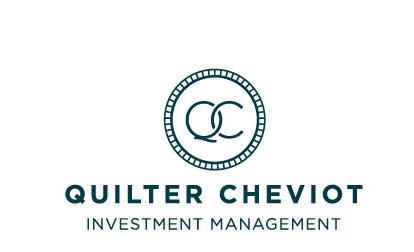
4 minute read
QUILTER CHEVIOT
from DFM Bulletin Issue 1
by rsmr
Chris Beckett, Head of Equity Research, Quilter Cheviot
Matt Ennion, Fund Research Analyst, Quilter Cheviot
OUTLOOK FOR UK DIVIDENDS: STILL A RELIABLE INCOME?
Stock markets have rebounded
quickly from their lows this year, but the outlook for UK dividend investors remains mixed. Many companies have cut or suspended their dividends in response to the coronavirus crisis and given an impending global recession, these look unlikely to be reinstated in the short term.
Nevertheless, we expect the UK and global economy to recover in 2021, with dividends rebounding too. The picture will vary sector by sector and company by company. Food retailers and consumers goods companies have maintained their dividends, for example, with these sectors tending to either be unaffected by the pandemic or beneficiaries of it. Pay-outs from the oil and gas sector, a highly cyclical part of the market, are likely to remain at a permanently lower level.
However, dividends will remain an important source of income for many investors, even in the short term. Dividend income is likely to be more concentrated amongst sectors, but there are ways to diversify your income sources and wider merits to sticking with UK dividends.
In both absolute and relative terms, UK shares still offer a high level of income. As of the end of May 2020, the FTSE 100 offered a yield of slightly more than 4%, significantly higher than the yield on ten-year UK government bonds, which stood at just under 0.2% at the end of the month. Furthermore, this ‘income premium’ is unlikely to change in the short term. UK dividends have already fallen by around a third, including a total suspension of dividends by the banking sector as the regulator demanded the banks display prudence with their balance sheets.
While we could see UK dividends fall by 50% in total from their 2019 peak in a worst case scenario, this would still leave the market trading on a yield of round 3%. Bond yields are likely to remain low for the foreseeable future, helping to sustain the attractiveness of the stock market even in the face of dividends cuts or suspensions.
Dividend resilience: not all sectors are created equal
Dividend cuts have been highly concentrated by sector. There are those who simply cannot pay, including businesses in the travel or retail sector, many of which have been directly affected by lockdown measures. There are others who believe it is prudent not to pay, such as the housebuilders, which now looks like a case of excessive prudence. Many housebuilders have net cash positions with some encouraging signs that at least some in the sector are coping well with the crisis.
There are some companies, such as BP in the oil sector, which have not yet adjusted their dividends. We do not expect a cut in the dividend in the second quarter, with the longer-term outlook contingent on oil prices.
Overall, we expect the dividend yield on our UK 40 stock model to fall to around 4.1% in our base case, with a worst-case scenario seeing a dividend yield of 3.2%. This would still be an attractive yield compared to other
asset classes, however. Fundamentally, many UK businesses remain well run, high quality names, and while a dividend suspension will hurt in the short term, offer good long-term income potential.
How to adapt a portfolio
Of course, there may still be some actions investors might want to consider, especially if they are specifically in the market for an income. Diversifying your UK exposure into smaller UK companies could be one option if you do not already have small cap exposure, with UK smaller companies offering their highest yields since the Global Financial Crisis on some measures. With Brexit on the horizon, however, you need to pay due consideration to your overall UK exposure.
Income investors may also want to consider income-focused investment trusts, in addition to direct stocks or open-ended

funds. Investments trusts are allowed to hold back a proportion of the dividends they receive each year as reserves, releasing this surplus to investors in leaner years. Several UK investment trusts have sufficient reserves for their pay-outs to be unaffected by the coronavirus crisis, even assuming their holdings stop paying dividends entirely.
Conclusion
While Covid-19 may have badly shaken confidence in dividends as a source of income, there are still strong grounds for considering equity income as an asset class, not least the higher yields and potential for income growth over time. Furthermore, investors have continued to put money into income funds during the coronavirus crisis, suggesting that long-term demand remains strong. Dividends may have suffered in 2020, but the case for equity income remains intact. n l Quilter Cheviot
One Kingsway London, WC2B 6AN
contact: Marketing e: marketing@quiltercheviot.com t: +44 (0)20 7150 4000 w: www.quiltercheviot.com
FREE, decisive intelligence and insight for financial advisers
Utopia for financial advisers
Getting the right information isn’t easy. Our Hub provides considered, market-leading intelligence for financial advisers looking to add structure to their selection process and perfect their offering.
The RSMR approach

We’ve been working with financial advisers since 2004, assisting them in delivering the right investment solutions for their clients. Over 15,000 advisers across the UK now use our fund ratings, which are underpinned by our rigorous investment research & analysis.





